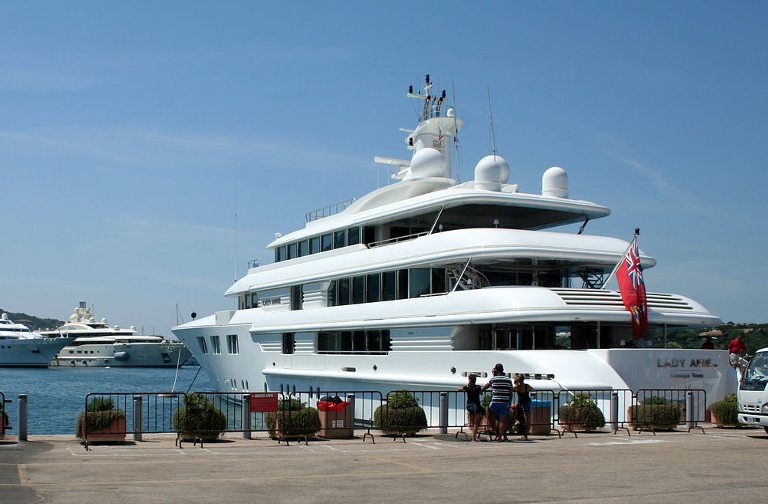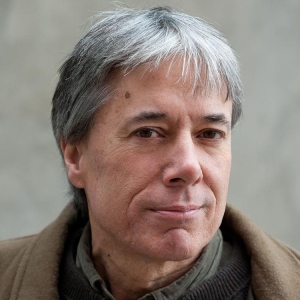Six months ago you might have been hesitant to say the words. But thanks to a political season of bold ideas – and the furious response of the U.S. public to four decades of extreme inequalities of wealth and power – you can now utter the words in polite company. It is time to tax the very rich.
On June 25, 2019, the Institute for Policy Studies co-produced a conference with our allies at the Economic Policy Institute that was truly ground-breaking, thanks in part to its title: “Taxing the (Very) Rich: Finding A Cure for Excessive Wealth Disorder.” Over 21 organizations joined us in co-hosting the sold-out conference at the Mayflower Hotel in Washington, DC. Note this conference was aligned and inspired by the April 2019 conference “Taxing the Rich,” hosted by the Patriotic Millionaires. You can watch their entire April gathering here.
A Viewer’s Guide to Our Conference on Taxing the Rich
You can watch the whole conference on YouTube, now broken into 13 bite-sized segments. Here’s a primer to enjoy it.
The conference began with a keynote address by Nobel Laureate and New York Times columnist Paul Krugman. He talked about how it has been hard to broach the topic of the distorting impact of the very rich. Talking about the 1 percent fails to talk about the plutocratic impact our democracy is facing. Krugman wrote a blog post in preparation for the conference on “Excessive Wealth Disorder.” It’s worth watching Krugman’s whole 40-minute talk.
Alan Davis of the Why Not Initiative provided a humorous introduction to Excessive Wealth Disorder and the importance of understanding the role of the 0.1 percent in disrupting our society. See his introductory remarks here.
The conference included six electrifying 7-minute talks about the ways that the concentrated wealth of the richest 0.1 percent undermine different aspects of our economy, democracy, environment, civic life and philanthropy.
Heather Boushey from the Washington Center on Equitable Growth discusses the ways that extreme inequality undermines economic health and stability. A brilliant critique of trickle down.
Nancy McClean, professor of history at Duke University and the author of Democracy in Chains: The Deep History of the Radical Right’s Stealth Plan for America, talks about the threat to democracy posed by the money power of the 0.1 percent.
Barbara Ehrenreich, author of over a dozen books, including Nickel and Dimed, is cofounder of the Economic Hardship Reporting Project. She thanked the “class traitors” in the room and talked humorously about the ways that the rich wreck things and put a burden on the rest of us, including pushing up cost of housing and higher education and higher levels of pollution.
Jacqueline Patterson, who directs the NAACP’s Program on Environmental & Climate Justice, talked about how excessive concentrations of wealth hurt the ecological environment.
Ray Madoff, professor of Law at Boston College, talked about the corrosive impact of concentrated wealth on philanthropy and the independent sector.
Valerie Wilson, economist at the Economic Policy Institute, where she directs the Program on Race, Ethnicity and the Economy, talked about the ways that extreme inequality interacts with racial economic disparities.
How To Tax the (Very) Rich in Four Easy Pieces
In a very substantive panel discussion, four tax experts discussed different ways to tax the very rich. Do we tax high incomes? Do we tax wealth? How do we deal with aggressive tax avoidance by the rich?
Sarah Anderson, director of the Global Economy program at the Institute for Policy Studies and co-editor of Inequality.org, moderates a panel with four experts on proposals to tax the top.
Chye-Ching Huang from the Center for Budget and Policy Priorities focused on the range of proposals to tax high incomes. Greg Leiserson of the Washington Center for Equitable Growth discusses how to tax wealth at very high levels. Lily Batchelder, professor at New York University School of Law, talks about the state of wealth transfer taxes, including the estate tax and how an inheritance tax would work. Josh Bivens, economist at the Economic Policy Institute, talks about the bold idea of a 10 percent surtax on incomes over $2 million.
Two Politicians Step Up
Senator Chris Van Hollen (D-MD) and Representative Jan Schakowsky (D-IL) both addressed the conference about the need to advance a progressive tax agenda in Congress. Senator Van Hollen announced his plan to introduce a 10 percent surtax on incomes over $2 million, the proposal outlined by economist Josh Bivens.
Rep. Jan Schakowsky discussed her plan to introduce the Fairness in Taxation Act, comprehensive legislation to tax the very rich. She will also introduce a House version of Senator Van Hollen’s surtax legislation.
Moving the Agenda to Tax the Very Rich
Thea Lea from the Economic Policy Institute moderated a discussion about the messaging and movement required to advance a “tax the wealthy” agenda.
I highly recommend watching pollster Celinda Lake’s analysis of just how popular proposals to tax the rich are. “The public is way ahead of the elites,” when it comes to taxing the rich, according to Lake.
Erica Payne, founder and president of the Patriotic Millionaires, points out that the Trump tax cut was a payoff to the donor class –and it’s a gift to us because the more people know about it, the more they oppose it.
Veteran tax fairness organizer Frank Clemente, director of Americans for Tax Fairness, talks about the need to make the tax system fair and raise $10 trillion in revenue over the next ten years to build infrastructure and reduce student debt. AFT has put out a report, “Fair Taxes Now: Revenue Options for a Fair Tax System.”
Dorian Warren, executive director of Community Change, talked about power, race, and strategy to win a different tax agenda. Policy is a form of “power frozen in time.” Warren explores why in a democracy that low-income people don’t vote to redistribute tax obligations.
Building a Campaign to Tax the Very Rich
The conference closed with a fantastic session with some of the best economic justice campaigners from around the country. These organizers talked about ways to move a “tax the very rich” agenda at the community and national level.
Stephanie Taylor, co-founder of Progressive Change Campaign, talked about the different elements of a successful campaign, including field, communications, and digital tools. Shailly Gupta Barnes, from the Poor People’s Campaign, talked about how they have integrated a tax the rich program in their national effort to end poverty. Sarita Gupta, the outgoing co-director of Jobs with Justice, talked about the lessons from campaigns to tax the wealthy, including unsuccessful efforts in Maine and other states. Connie Razza from the Center for Popular Democracy, talked about the ingredients of successful campaigning.






